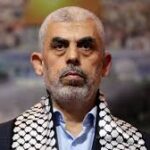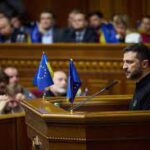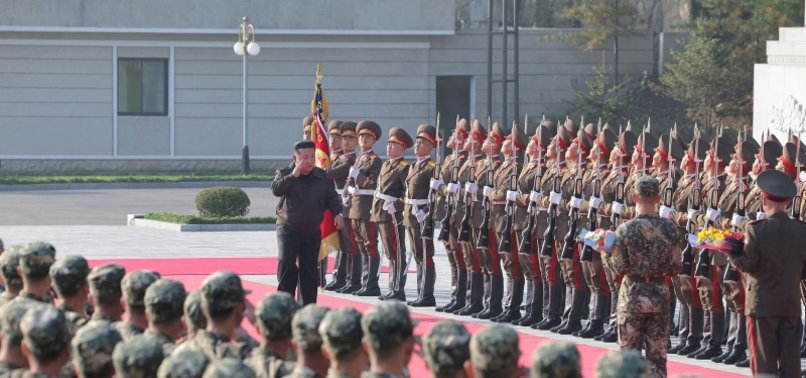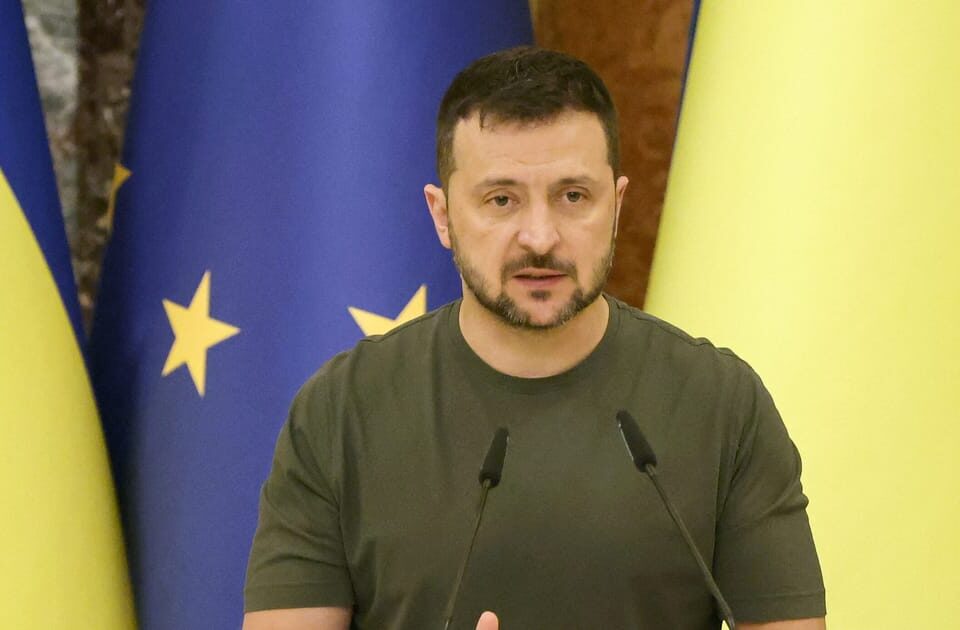
“Israeli forces report the killing of a senior Hamas leader Yahya Sinwar, in the ongoing conflict in Gaza.”
October 18, 2024
Zelensky Unveils ‘Victory Plan’ to Ukrainian Parliament
October 18, 2024North Korean Troops Now Fighting Alongside Russia in Ukraine

Recent reports from South Korea’s spy agency (NIS) claim that North Korea has begun sending troops to support Russia’s efforts in Ukraine. This assertion adds another layer to growing concerns about North Korea’s increasing involvement in the Russia-Ukraine conflict. South Korean officials have expressed deep alarm, describing the development as a “grave security threat.” The disclosure follows comments from Ukrainian President Volodymyr Zelensky, who suggested that as many as 10,000 North Korean soldiers might be mobilized to fight in the war, based on Ukrainian intelligence.
In response to these reports, South Korean President Yoon Suk Yeol convened a national security meeting, emphasizing the need for a coordinated global response. “All available means” should be utilized by the international community to address this growing concern, Yoon stated. According to the NIS, approximately 1,500 North Korean troops have already arrived in Russia, with sources indicating that the final number could reach up to 12,000. This marks a significant step in the evolving relationship between North Korea and Russia, which has been characterized by deepening cooperation in recent months.
Evidence of this collaboration was also observed through the recovery of a missile in Ukraine’s Poltava region, believed to have been supplied by North Korea. Additionally, satellite images released by Seoul’s intelligence agency show the presence of North Korean troops at Russian military bases in cities such as Vladivostok, Ussuriysk, Khabarovsk, and Vlagoveshensk. These bases are reportedly training grounds for the North Korean forces, further solidifying the military ties between the two nations.
This uptick in North Korean military involvement comes as relations between Moscow and Pyongyang continue to strengthen. Last week, North Korean leader Kim Jong Un personally congratulated Russian President Vladimir Putin on his birthday, calling him his “closest comrade,” underscoring the deepening personal and political relationship between the two leaders. Just a few days prior, Putin introduced legislation to ratify a military pact with North Korea, which includes provisions for mutual assistance in the event of an attack on either country.
The recent revelations of North Korean troops in Russia align with reports from Ukrainian military intelligence, which suggest that Russia is forming a dedicated unit of North Korean soldiers. This growing military cooperation, coupled with North Korea’s alleged supply of ammunition to Russia, is stoking fears about the potential escalation of the conflict. The NIS also reported that North Korea has sent thousands of shipping containers filled with weapons to Russia since August, including millions of artillery shells, missiles, and anti-armor rockets.
However, military analysts have raised questions about the integration of North Korean soldiers into the Russian military. Aside from the language barrier, the North Korean army lacks recent combat experience, making their effectiveness on the frontlines uncertain. Some experts suggest that these troops could be deployed in non-combat roles, such as guarding the Russia-Ukraine border, thereby freeing up Russian forces for active combat operations elsewhere.
The South Korean government remains vigilant, with President Yoon’s office stressing the importance of not ignoring the threat posed by this growing alliance. During Friday’s security meeting, attended by key officials from South Korea’s National Security Office, the Ministry of National Defence, and the National Intelligence Service, the government reiterated its commitment to working with international partners to address the situation.
This military cooperation between North Korea and Russia is a troubling development that adds a new dimension to the Ukraine conflict. It highlights the increasingly complex geopolitical landscape, with Russia drawing support from nations like North Korea in its ongoing war with Ukraine, further complicating global efforts to resolve the conflict peacefully.


